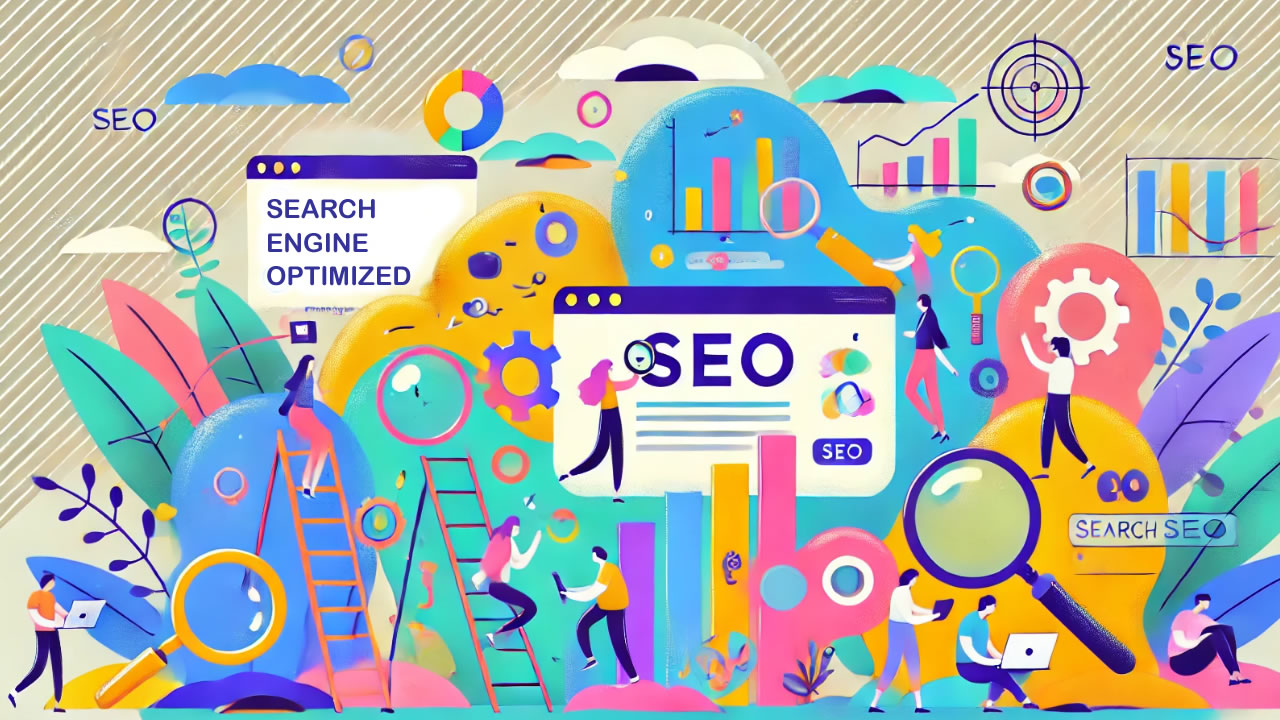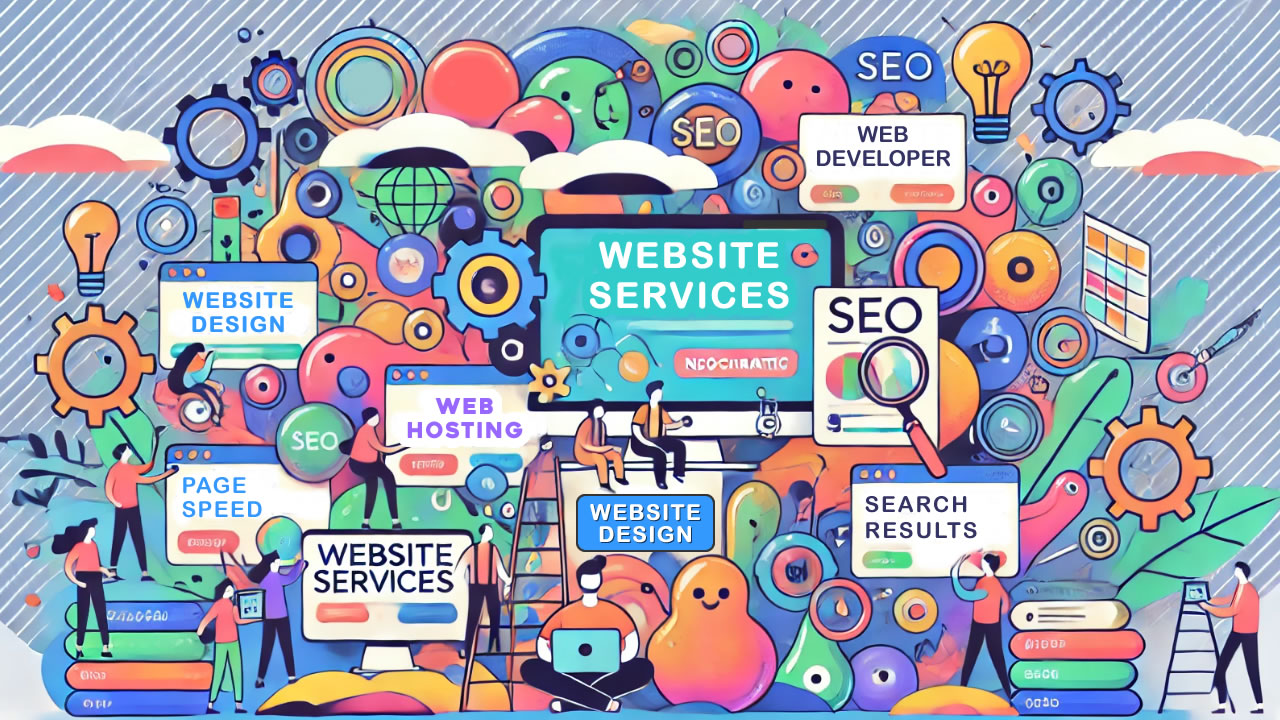Search engine optimization (SEO) is often seen as a technical aspect of website management, but its relationship with marketing is undeniable and crucial for business owners. At its core, SEO is one of the most powerful tools within a marketer’s arsenal, driving traffic, increasing brand visibility, and ultimately contributing to a business’s bottom line. In today’s digital-first world, where customers turn to search engines like Google to find products, services, and information, SEO should be a key part of any business owner’s marketing strategy.
In this blog post, we’ll explore how SEO is deeply intertwined with marketing and why it’s an essential component of any marketing campaign. We’ll look at how SEO enhances inbound marketing efforts, its role in content marketing, how SEO metrics can guide your marketing decisions, and why integrating SEO into your broader marketing strategy delivers long-term results. We’ll also cover the benefits of SEO, provide actionable insights on how it can amplify your marketing initiatives, and discuss why it’s an investment that pays off over time.
The Role of SEO in Modern Marketing
What is SEO?
SEO, or Search Engine Optimization, is the process of improving a website’s visibility on search engine results pages (SERPs). It involves optimizing various elements of a website—from technical aspects like page speed and mobile-friendliness to on-page elements like keywords, headings, and content. The goal is to make a website more accessible to search engines and ensure it ranks higher for relevant queries.
But SEO is more than just appeasing Google’s algorithms. It’s about ensuring that your website answers the needs of your target audience and provides a seamless user experience, both of which are integral to modern marketing.
What is Marketing?
Marketing is the broad process of promoting, selling, and distributing a product or service to potential customers. It involves understanding your audience, creating a brand message, and using various channels to deliver that message effectively. Digital marketing, in particular, refers to using digital channels like websites, social media, email, and online advertising to attract and engage customers.
At its core, marketing aims to build relationships with customers, raise awareness, and drive conversions—and this is where SEO plays a crucial role.
How SEO Enhances Marketing Efforts
SEO and marketing overlap in many ways, but the primary connection is that both aim to attract, engage, and convert potential customers. Here are a few reasons why SEO should be an integral part of your marketing strategy:
Increasing Organic Visibility: SEO helps your website appear higher in search engine rankings for relevant queries. This means when potential customers search for your product or service, they are more likely to find your business. It’s estimated that 53% of all website traffic comes from organic search, making SEO one of the most cost-effective ways to drive new visitors to your site.
Boosting Brand Awareness: The more visible your website is in search results, the more your brand appears in front of potential customers. Over time, this visibility helps build brand recognition and trust, which are essential for any marketing strategy.
Targeting Specific Audiences: SEO allows business owners to target specific keywords that align with their products or services. This means you can reach people who are actively looking for what you offer. By aligning your SEO strategy with your target audience’s search intent, you can drive high-quality traffic to your website, which is more likely to convert into leads or sales.
Improving User Experience: Many of the key factors in SEO, such as page load speed, mobile-friendliness, and content relevance, directly impact user experience. When users have a positive experience on your website, they are more likely to engage with your brand, spend more time on your site, and take action—such as making a purchase or signing up for a newsletter.
SEO and Content Marketing: A Powerful Partnership
How SEO Drives Content Marketing
Content marketing and SEO are inextricably linked. Content marketing involves creating valuable, informative, and engaging content to attract and retain an audience. SEO, on the other hand, ensures that the content you create is discoverable by the people who need it most—through search engines like Google.
For your content marketing efforts to be successful, you need to ensure that your content ranks high in search results for relevant queries. Here’s how SEO supports content marketing.
Keyword Research: Before creating content, SEO helps marketers identify the keywords and phrases their target audience is searching for. Using tools like Google Keyword Planner, Ahrefs, or SEMrush, you can find search volume data, competition levels, and related keywords to guide your content strategy. By incorporating these keywords naturally into your content, you improve the chances of your content ranking higher in search results.
Content Optimization: SEO ensures that your content is structured and formatted in a way that makes it easy for search engines to understand and rank. This includes using header tags (H1, H2, H3) to break up content, adding meta descriptions and title tags, and ensuring that images have alt text. These elements are all critical for on-page SEO and can significantly improve the visibility of your content.
Creating Evergreen Content: SEO encourages the creation of evergreen content—content that remains relevant and valuable over time. By focusing on topics that aren’t time-sensitive, you can create pages that continue to drive organic traffic for months or even years. Evergreen content, such as how-to guides, tutorials, and resource lists, provides long-term value to both your audience and your SEO strategy.
Content Promotion: SEO also plays a role in content promotion. When you create high-quality content, optimizing it for SEO can help it rank well, leading to organic backlinks from other websites. These backlinks improve your domain authority, further boosting your search rankings.
SEO Metrics to Measure Content Marketing Success
Integrating SEO with content marketing allows marketers to measure the success of their content efforts more effectively. Some key SEO metrics to track include the following.
Organic Traffic: How many visitors are finding your content through search engines? This is a key indicator of how well your SEO and content marketing efforts are working.
Bounce Rate: If users land on your content and quickly leave, it could be a sign that your content isn’t meeting their expectations. A high bounce rate could indicate that your content needs to be more engaging or relevant.
Average Session Duration: How long are users spending on your site after landing on your content? A longer session duration indicates that users are finding your content valuable.
Conversion Rate: Ultimately, the goal of both SEO and content marketing is to drive conversions, whether that’s making a purchase, signing up for a newsletter, or filling out a contact form. Tracking your conversion rate helps you measure the effectiveness of your content in driving meaningful actions.
How SEO Metrics Can Guide Marketing Decisions
SEO provides marketers with valuable data and insights that can inform broader marketing strategies. By analyzing SEO metrics, business owners can better understand their audience, track the effectiveness of their campaigns, and make data-driven decisions.
Key SEO Metrics for Marketers
Search Rankings: Monitoring where your website ranks for target keywords allows you to gauge how effective your SEO efforts are. If you see a significant drop in rankings, it may indicate a technical issue or the need to update your content.
Organic Traffic Growth: Organic traffic measures how many visitors come to your website via search engines. An increase in organic traffic is a positive sign that your SEO strategy is working, while a decline may indicate that your content isn’t resonating with your audience or that your website is being penalized by search engines.
Backlinks: Backlinks are a critical SEO metric because they signal to search engines that other websites find your content valuable. By tracking your backlinks, you can measure how authoritative your website is becoming over time. You can also identify opportunities for outreach or collaborations to gain more backlinks.
Click-Through Rate (CTR): CTR measures how often users click on your website after seeing it in search results. A low CTR could indicate that your meta description and title tags need improvement, or that your content isn’t relevant to the user’s search intent.
Domain Authority: Tools like Moz and Ahrefs provide a domain authority score, which is a measure of your website’s overall SEO strength. Higher domain authority increases your chances of ranking well for competitive keywords.
The Long-Term Benefits of Integrating SEO into Marketing
One of the most significant advantages of SEO is that it provides long-term results. While paid advertising, such as pay-per-click (PPC) campaigns, can deliver immediate traffic, SEO is a more sustainable approach that continues to drive results over time.
Cost-Effectiveness
Unlike paid advertising, which requires ongoing investment, SEO can deliver results with less financial input once it’s fully implemented. After the initial investment in SEO strategy, content creation, and optimization, your website can continue to rank well and attract organic traffic for months or years. This makes SEO one of the most cost-effective marketing channels for businesses, particularly those with limited budgets.
Building Trust and Credibility
SEO helps build trust with both search engines and users. Websites that appear at the top of search results are often perceived as more credible and authoritative. As your website’s visibility and domain authority increase, so does your brand’s reputation.
Staying Competitive
In today’s digital landscape, SEO isn’t just an advantage—it’s a necessity. Business owners that don’t invest in SEO risk being outranked by competitors, especially for high-intent search terms that drive conversions. As more business owners recognize the value of SEO, competition for top rankings will only increase, making it crucial to implement a solid SEO strategy sooner rather than later.
Adaptability to Algorithm Changes
Search engines like Google are constantly updating their algorithms to improve the quality of their results. SEO requires business owners to stay agile and adapt to these changes, whether it’s through improving page speed, creating mobile-friendly designs, or producing high-quality content that aligns with user intent. The data-driven nature of SEO allows businesses to quickly respond to changes and maintain their competitive edge.
Why Digital Marketing and SEO Are the Future
With more consumers turning to online searches before making purchasing decisions, digital marketing—and specifically SEO—is becoming the most powerful and sustainable form of marketing. According to data from HubSpot, business owners that focus on inbound marketing (which includes SEO, content marketing, and social media) save 61% more per lead than those that rely on outbound tactics like direct mail or traditional advertising.
By integrating SEO with other digital marketing strategies, such as content marketing, PPC, email marketing, and social media, businesses can create a comprehensive marketing plan that drives long-term growth.
How SEO Supercharges Your Marketing Efforts
SEO is an essential part of any modern marketing strategy, enabling business owners to reach their target audience organically, build credibility, and drive sustainable traffic over time. By aligning SEO with your broader marketing goals, you can create a more cohesive and effective marketing plan that delivers tangible results.
At NeoChromatic, we specialize in developing SEO-optimized websites and comprehensive digital marketing strategies that help business owners in Nashville and beyond achieve their goals. Whether you’re just getting started or looking to enhance your current marketing efforts, we’re here to help you maximize your online visibility, attract more leads, and increase conversions.
Contact us today to learn how we can help you build a fast, search engine optimized website and execute a successful SEO strategy that drives real business growth.
Start Optimizing Your Business Today
Schedule A CallRead more about SEO

How DIY Website Builders Create SEO Problems for Businesses

How We Got Here: The History of Search Engine Optimization

